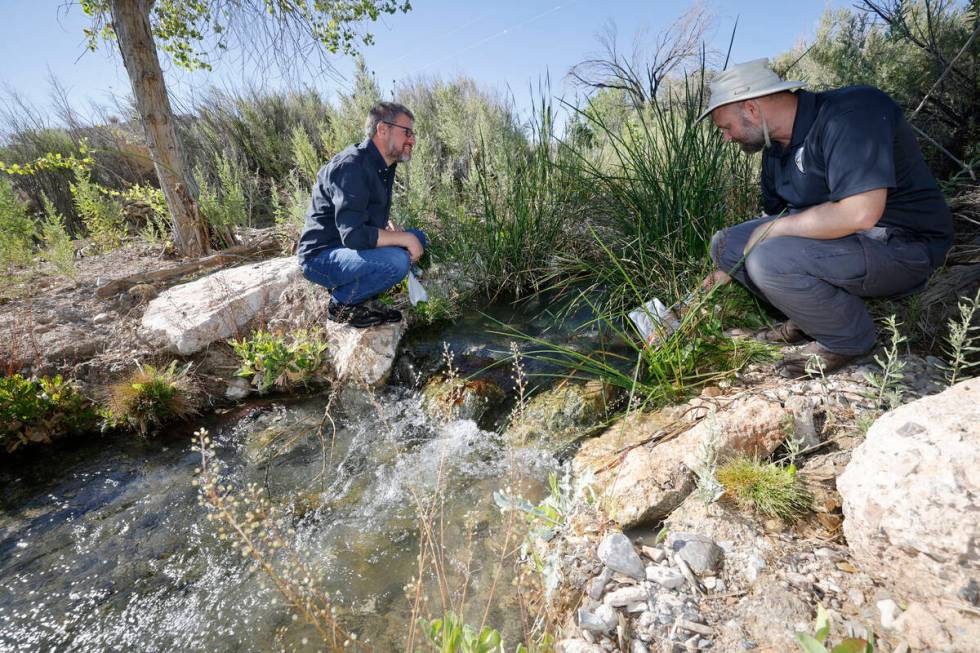Tiny Nevada fish getting some help, thanks to federal grant
A lot of money is going to help one little fish in Southern Nevada.
The Department of the Interior said Wednesday the Southern Nevada Water Authority was granted $743,329 to support improvements to the Muddy River at the Warm Springs Natural Area, located near Moapa Valley.
The money for the grant comes from the Infrastructure Investment and Jobs Act passed in 2021.
The Warm Springs area is one of Southern Nevada’s few riparian habitats, and makes up 80 percent of the habitat of the Moapa dace — an endangered, thumb-sized fish that only lives in the area’s waters.
The grant money will help support existing goals outlined in the area’s 12-year-old Stewardship Plan, which details how the SNWA and other agencies plan to protect the Moapa dace and other native species, according to SNWA spokesman Bronson Mack.
Work has already begun to protect the fish, like reconstructing stream channels once used by pioneers, but the water authority wants to use the grant to keep the ball rolling, Mack said.
“Being able to carry forward that work that we have already done to enhance and protect that habitat for the dace, thereby seeing the population of the dace continue to grow and be healthy, we have strong confidence that we will be able to continue those enhancement efforts for the benefit of the dace,” Mack said.
A standout project that will be supported by grant funding is making 12 acres of riparian habitat a place for wildlife to thrive by removing invasive non-native plants and replacing them with native plants, like mesquite and cottonwood trees.
Mack said non-native plants can create hostile conditions for native plants and animals in the area. One example is the tamarisk — a plant that increases the salinity of the soil and makes it so that native plant species can no longer survive.
California fan palms also cause trouble in the area when trees’ shade makes the area’s naturally-warm waters too cold for the dace, Mack said.
“Many of the residents in the area of Moapa and Logandale appreciate the palm trees, and we certainly appreciate the palm trees, too,” Mack said. “We just want to make sure that the palm trees stay in areas where they are not affecting habitat for sensitive, threatened species.”
Tiny fish won’t be the only ones benefiting from restoration efforts, Mack said. Keeping the Muddy River healthy keeps humans healthy, as the river flows into Lake Mead and provides irrigation water for rural, Southern Nevada communities.
“The more that we can protect it and ensure that it remains a viable resource, there is a direct benefit to those in the Moapa and Logandale areas,” Mack said.
The water authority plans to begin their grant-funded projects in early 2024, and finish by the end of 2026, Mack said.
Contact Taylor Lane at tlane@reviewjournal.com.

